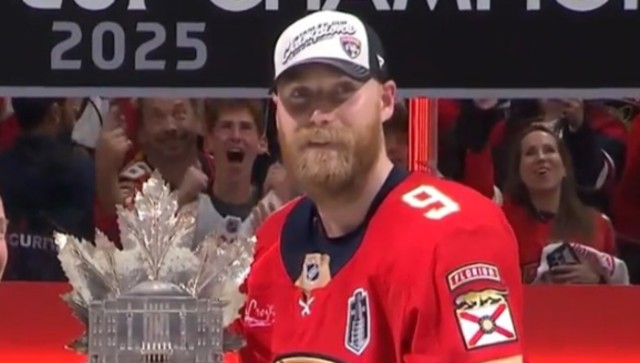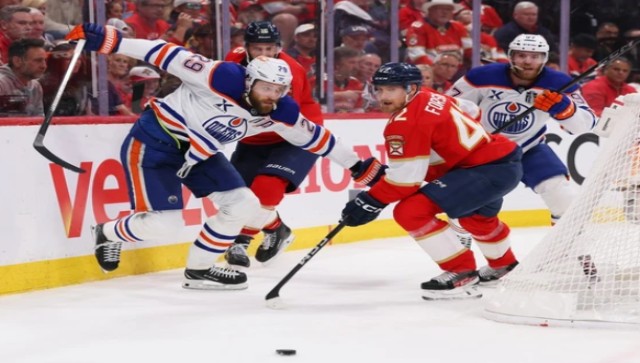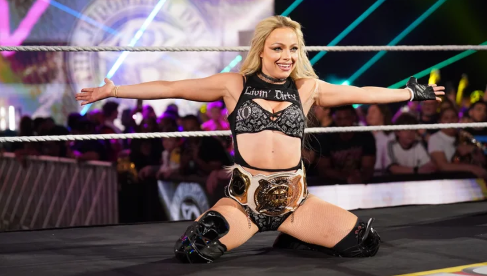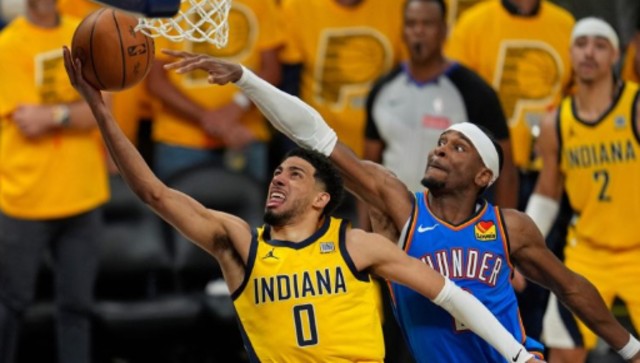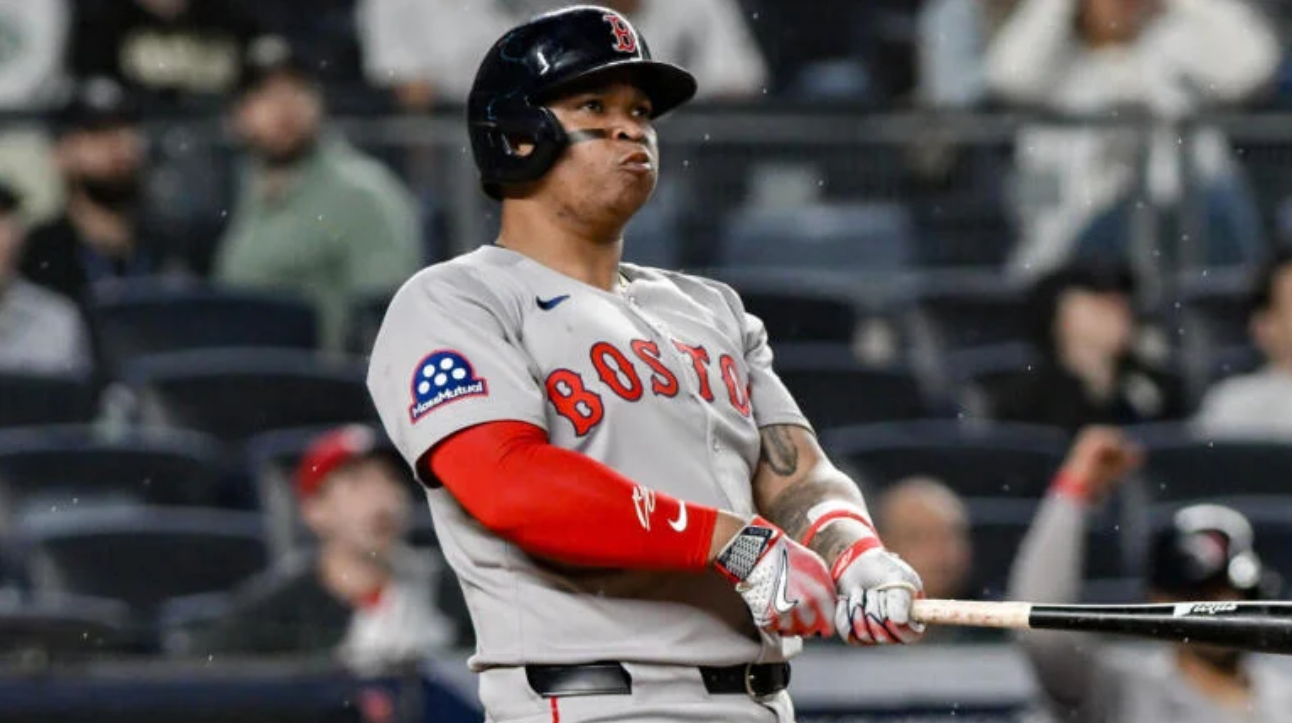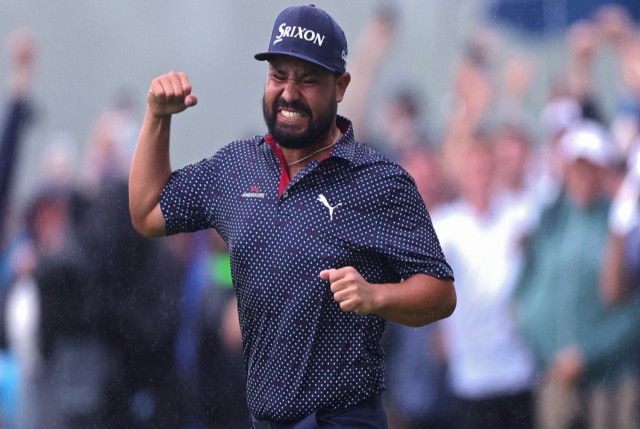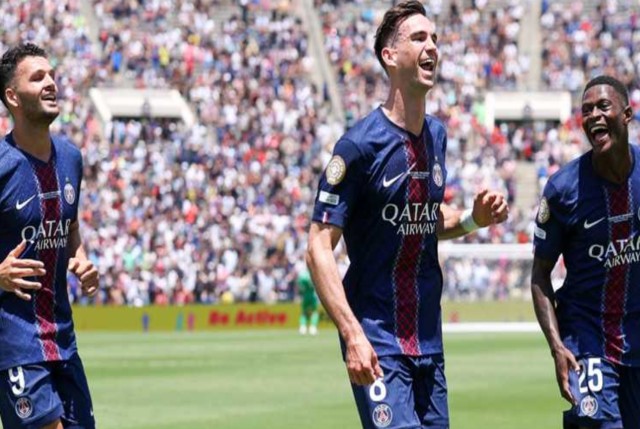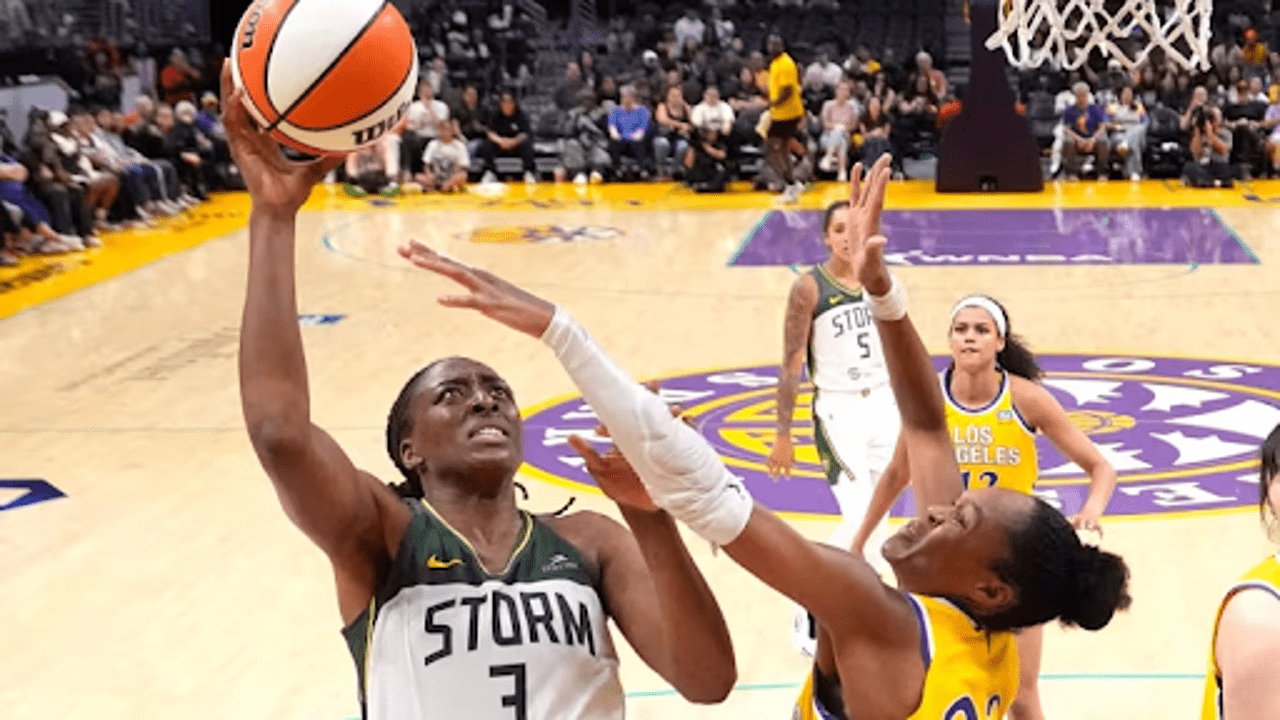
Nneka Ogwumike, president of the WNBAPA and forward for the Seattle Storm, stated that the players' union is committed to driving significant change after deciding to opt out of the current collective bargaining agreement with the league on Monday. This agreement will still apply to the 2025 season. (Mark J. Terrill/The Associated Press)
In a bold move, the WNBA Players Union has decided to opt out of its current collective bargaining agreement (CBA) two years before its official expiration. The union and league had the opportunity to exit before November 1, and the players have seized the moment, signalling a critical phase for the future of the league.
This decision comes at a time when the WNBA is flourishing. The league signed an impressive 11-year media rights deal valued at $200 million annually and experienced record-breaking attendance and viewership this year. The thrilling conclusion of the WNBA Finals, in which the New York Liberty clinched their first championship with a dramatic overtime win over the Minnesota Lynx, capped off a historic season for the league.
WNBPA President Nneka Ogwumike emphasized the significance of the union's decision, framing it as a step toward broader progress. “This is a defining moment not just for the WNBA, but for all of us who believe in progress,” Ogwumike said on Monday. "The world has evolved since 2020, and we cannot afford to stand still. If we remain in the current agreement, we fall behind. This is a new era, and we are ready to lead transformational change."
The union’s decision to opt out of the CBA sets the stage for renegotiation, with the current agreement still in effect until the end of the 2025 season. Both sides now have a year to come to terms on a new deal that will shape the future of the league. WNBA Commissioner Cathy Engelbert expressed optimism about the negotiation process, highlighting the league's strong position, especially with the new media rights deal and increased corporate partnerships. "With the historic 2024 WNBA season now in the books, we look forward to working together with the players and the WNBPA on a new CBA that is fair for all and lays the foundation for growth and success for years to come," Engelbert stated.
The union’s primary focus is on a new economic structure that reflects the league's rapid growth and gives players a fairer share of the financial success they have helped generate. The current system, according to the union, is outdated, with salary caps and player benefits being too restrictive. The players are pushing for an equity-based model that better aligns with the league's rising business success.
Other key issues the union seeks to address in the upcoming negotiations include improved salaries, enhanced retirement benefits, and better support for family planning and childcare. WNBPA vice president Kelsey Plum explained that the decision to opt out of the agreement is part of a broader effort the players have been working toward for years. "This isn't some sudden wake-up call. It's the culmination of what we've been driving for over the last several seasons," Plum said. "We've played a key role in the league's historic growth, and now we're breaking free from the current system to demand full transparency and an equitable stake in the business we've helped build."


